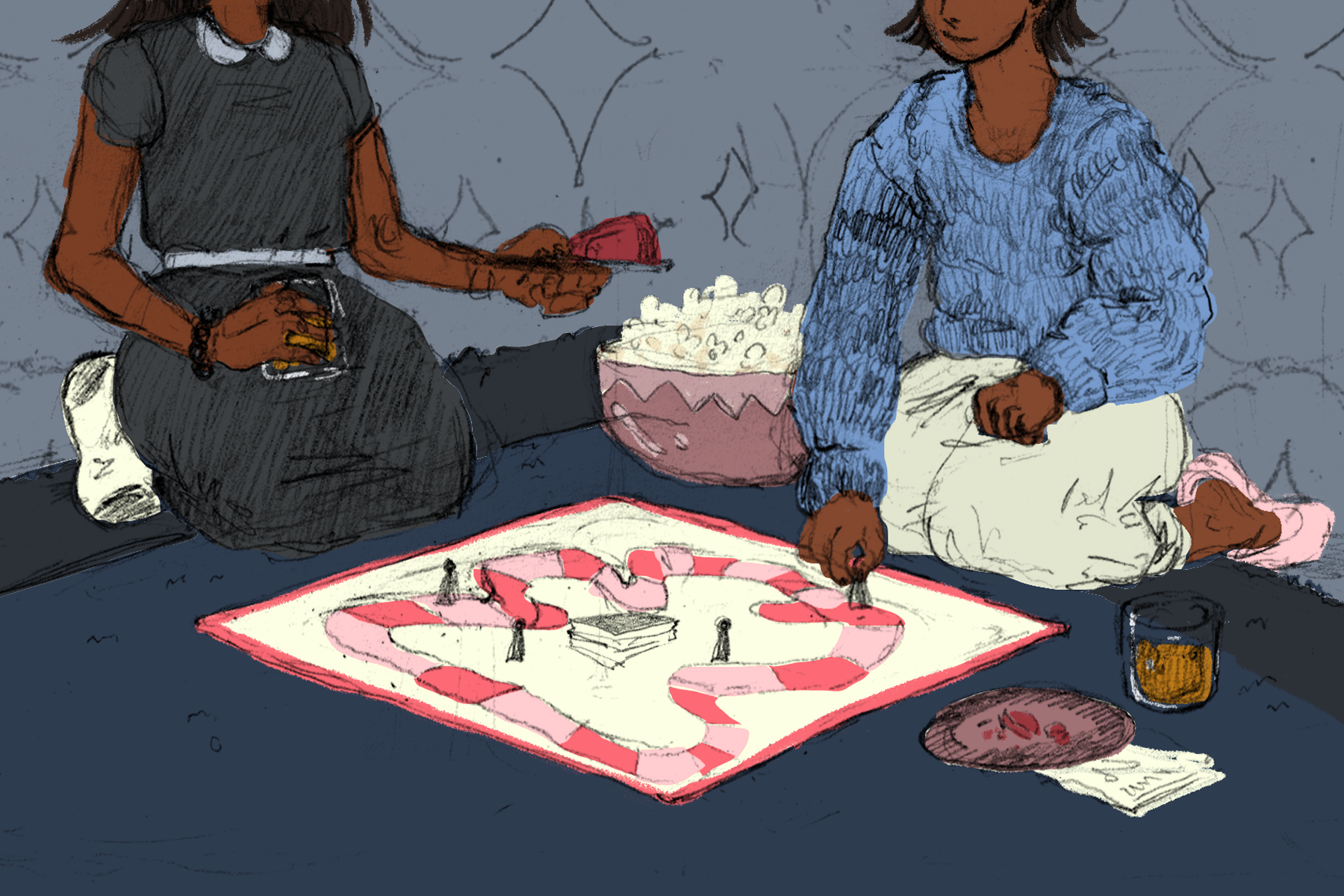Students across the country are neck deep in end-of-semester stressors: cumulative exams, research papers and whatever the heck a PechaKucha is (no really, someone please help!). After putting down their pencils and submitting their reports, students welcome the sweet, sweet acceptance that their final grades are in someone else’s hands. College students are then flung into a new kind of stress — heading home for winter break. While it may be exciting to see your family, cuddle up in a childhood bed and indulge in all-you-can-eat home cooking, being home after a semester away poses new challenges. Unsurprisingly, families struggle with the new dynamics that come with students’ winter returns. Fortunately, there are some things that are particularly helpful in getting us through the long break: table games.
Table games denote any game you’d play around a table, but the most well-known examples are board games and card games. Board games have been around since the dawn of civilization. These entertaining distractions were probably invented by some stressed out leader who was tired of the bickering between their subjects. You can still pick up a copy of Senet, the Ancient Egyptian boredom buster, but board games have evolved and expanded considerably since then. Card games have existed since paper was invented in Ancient China over 1,000 years ago. If these games have entertained humans throughout time and space, you can probably trust them to entertain you during this winter break.
Oldies But Goodies
Some table games have entertained homes for decades or longer, and are still worth playing. Less complicated games that require almost no setup like checkers and chess can be played relatively quickly. The only resulting drama is a slight ribbing and an “I’ll get you next time”; most people are not flipping tables over the outcomes of these games. Furthermore, these mental sports are known to increase critical thinking and enhance one’s ability to focus.
Some games offer a little more stress and drama for families, but their benefits are still important. The ability to negotiate, regulate emotions and develop strategies can be found in classic games like Sorry!, The Game of Life and Jenga, all of which provide endless amounts of fun with relatively low stakes. Games like Scrabble and Yahtzee are even more important, as they develop vocabulary and math skills, respectively.
There are hundreds of reports of table-flipping antics stemming from the classic game Monopoly, but the award for “Most Likely to Destroy Your Family” goes to the seemingly innocuous board game, Clue. No longer allowed around my family (Thomas knows what he did), this game combines detective work, forced cooperation and deadlines to solve a murder in tabletop mayhem. Both Clue and Monopoly come in many different variations, some are even formatted around famous TV shows and attractions.
New Classics
Games developed in the last few decades are quickly becoming cult classics and family favorites. These games usually involve logic building and strategy, and some are even cooperative, meaning that everyone at the table wins or loses together. The biggest on the scene has to be Settlers of Catan, or just Catan if you’re a regular. Games like Catan may require a lot of setup, but they encourage players to focus on their own goals rather than sabotaging others to win. Messing up another players’ plans often happens unintentionally but is still satisfying. Villainous and Ticket to Ride are two other popular games in this category.
Cooperative board games like Hanabi, Forbidden Island and Pandemic allow players to work together to solve problems and beat the game as a group. Being on the same team as your sibling may not seem entertaining, but you can still blame them if you don’t win. Unfortunately, learning new games can often take more time than actually playing them. But luckily, board game heroes like Wil Wheaton have created easy-to-follow videos on YouTube that spell out how various games are played and offer demonstrations for common scenarios.
Card Games
Countless games can be played with a common deck of cards, so definitely pick up a book on all the ways to keep busy with a simple deck or two. The classic game of UNO comes in multiple versions (including a waterproof one and one that shoots cards at you), but this family favorite is perfect in its original form. UNO will teach logic and strategy on top of emotional regulation as you are once again forced to Draw Four by your smug little brother.
Other classics like Racko and Phase 10 are still holding strong, but modern card games are at peak entertainment value. Newer games like Sushi Go! and Exploding Kittens will have families entertained and playing together for hours. Arguably the best card game for families is Dutch Blitz, a fast-paced combination of solitaire and speed. This game contains an element of cooperative play yet still allows you to claim victory over your relatives.
Party Games
Saving the best for last, party tabletop games are fast-paced, easy to play (and explain) and promote bonding and fun. Game makers have appealed to players with pop culture references and even dark humor in games like Cards Against Humanity. For a lighter, yet still NSFW sense of humor, What Do You Meme? offers endless hours of hilarity.
Classics in the genre include Pictionary and Scattergories, but these are probably going to accumulate some dust after you try out more recent party games. Games like Red Flags, Codenames and I Should Have Known That can be played multiple times without going stale. But hands down, the best party game meant for everyone is Mr. Lister. In this game, individual players or teams have only a few seconds to write down everything they know about a given topic and then square up against each other. Teams work to collect different cards, which creates an element of chance that ensures the default winner won’t always be the in-house trivia buff.

















